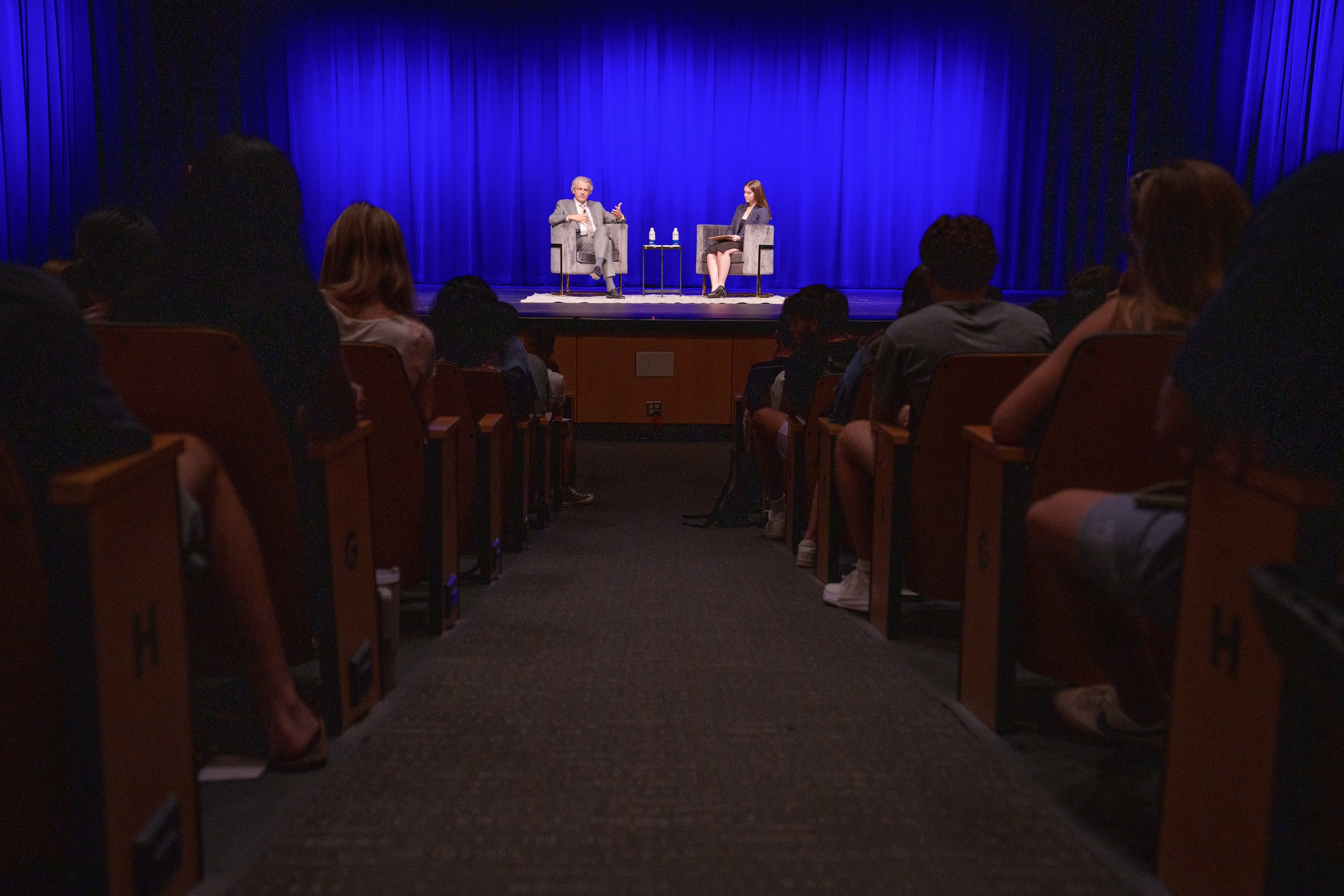First-year students at Vanderbilt spent their first Monday afternoon on campus with Chancellor Daniel Diermeier discussing the importance of free expression at Vanderbilt and how to engage in civil discourse.
“Everything we try to do is guided by our purpose and our core values … one of which is free expression,” Diermeier said to these new members of the Vanderbilt community. “In order for you to explore your interests and ideas fully, there needs to be a free flow of ideas, discussions and debates. Those discussions will take place in your classrooms, residential colleges, lunch, late-night study sessions or wherever you find yourself on campus.”
Diermeier explained that free expression is supported by three crucial pillars: open forums, institutional neutrality and civil discourse. To begin, he described how open forums are created by faculty, programs and students, and he encouraged students to engage with as many views as possible.
He then spoke at length about the topic of institutional neutrality, which compels university administrators—not students or faculty—to refrain from making public statements or taking actions related to issues that do not directly impact the functioning or operations of the university.
Diermeier concluded with “the Vanderbilt special,” civil discourse, which calls on community members to treat each other with respect and dignity, “always remembering that we are all part of one community and that the other person might be right.”
After these initial remarks, Diermeier was joined on the stage by Barrie Barto, fourth-year student and editor-in-chief of The Vanderbilt Hustler, the university’s student newspaper. Barto posed wide-ranging questions about free expression, including many submitted by members of the student audience. Her first question focused on how the chancellor’s views on free expression were shaped by his early life growing up in West Berlin, when it was still a city divided by the Berlin Wall.
“I have a deep appreciation for what it means to live in a free society. I don’t take these privileges for granted,” Diermeier said. “That’s why I’m passionate about values that I think are so important for us. The sense of civil discourse and free expression is absolutely essential, but I have a deep experience for what it means to live in a society where these values do not exist.”






Diermeier and Barto then delved into a wide range of topics important to the student body. They touched on a range of subjects, from institutional neutrality to Vanderbilt’s Community Creed. But they concluded with one of the main topics on students’ minds: the upcoming presidential election.
“This is a time of heightened tensions. People feel strongly, and people should feel strongly. I would encourage you … do not demonize the other side,” Diermeier said. “Remember that we’re members of one community, that everyone deserves to be here … and that they may have something to say that is a perspective that you just won’t have anywhere else.”
Throughout the conversation, Diermeier underlined that the entire Vanderbilt community is responsible for maintaining and championing a culture of free expression.
“It is really you all who have to do this in your day-to-day life. Every member of our community has a responsibility to uphold and live our culture, and that’s why we have the Community Creed,” Diermeier said. “It’s our mutual promise to each other, to those principles. … It’s a foundational aspect of our community, and it’s not always easy to deal with, but it’s essential. … We’re going to count on you.”
As with most Dialogue Vanderbilt events, this session ended with a question for the speaker. Barto asked the chancellor what gives him hope about the current moment, especially with regard to higher education and the student experience during a polarized time.
“I was so impressed with how our student body handled the challenges last year,” Diermeier said. “You always hear about the controversies here or there … we stayed together. We kept our principles front and center.”
